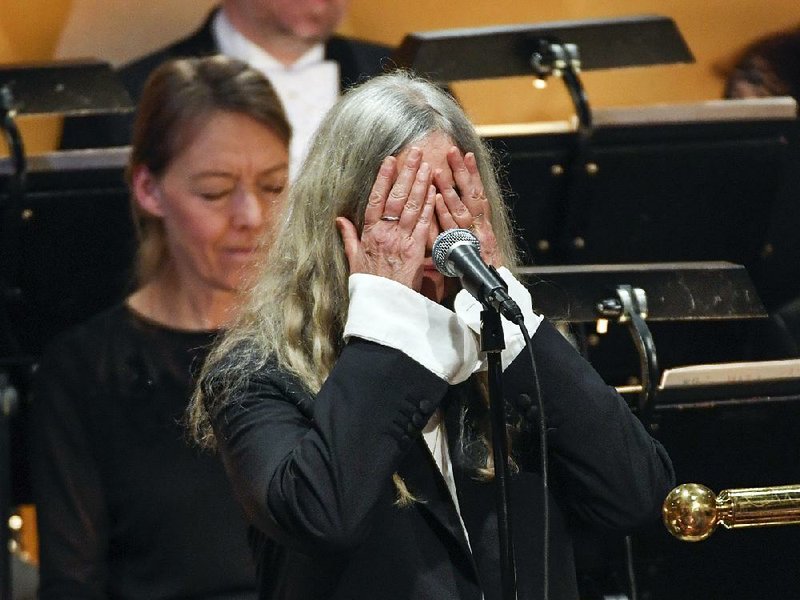STOCKHOLM -- Colombian President Juan Manuel Santos accepted the Nobel Peace Prize on Saturday, saying it helped his country achieve the "impossible dream" of ending a half-century-long civil war.
Santos received his Nobel diploma and gold medal at a ceremony in Oslo, Norway, for his efforts to end a conflict that has killed 220,000 people and displaced 8 million.
"Ladies and gentlemen, there is one less war in the world, and it is the war in Colombia," the 65-year-old head of state said, referring to the peace deal reached this year with leftist rebels from the Revolutionary Armed Forces of Colombia, or FARC.
Santos used his acceptance speech to celebrate the end of the longest-running conflict in the Americas, to pay tribute to its victims and to call for a strategic shift in another, related war -- on drug trafficking worldwide.
Just a few years ago, imagining the end of the bloodshed in Colombia "seemed an impossible dream, and for good reason," Santos said, noting that very few Colombians could even remember their country at peace.
The initial peace deal was narrowly rejected by Colombian voters in a referendum just days before the Nobel Peace Prize announcement in October.
Many believed that ruled out Santos from winning this year's prize, but the Norwegian Nobel Committee "saw things differently," Deputy Chairman Berit Reiss-Andersen said.
"The peace process was in danger of collapsing and needed all the international support it could get," she said in her presentation speech.
A revised deal was approved by Colombia's Congress on Nov. 30.
Several victims of the conflict attended the prize ceremony, including Ingrid Betancourt, who was held hostage by the rebels for six years, and Leyner Palacios, who lost 32 relatives, including his parents and three brothers, in a FARC mortar attack.
"The FARC has asked for forgiveness for this atrocity, and Leyner, who is now a community leader, has forgiven them," the president said. Palacios stood up to applause from the crowd.
The group's leaders, who cannot travel because they face international arrest warrants by the U.S., were not in Oslo. A Spanish lawyer who served as a chief negotiator for FARC represented the rebel group at the ceremony.
Colombians have reacted to Santos' prize with muted emotion amid deep divisions over the peace deal. The vast majority of Colombians didn't vote in October's referendum. For many people in big cities, Santos' overriding focus on ending a conflict that had been winding down for years has diverted attention from pressing economic concerns.
Santos in his speech referred to fellow Nobel laureate Bob Dylan, this year's winner of the literature award, by citing the lyrics of one of his most famous songs, "Blowin' in the Wind."
The president also used the Nobel stage to reiterate his call to "rethink" the war on drugs, "where Colombia has been the country that has paid the highest cost in deaths and sacrifices."
Santos has argued that the decades-old, U.S.-promoted war on drugs has produced violence and environmental damage in nations that supply cocaine, and that the effort needs to be supplanted by a global focus on easing laws prohibiting consumption of certain drugs.
"It makes no sense to imprison a peasant who grows marijuana, when nowadays, for example, its cultivation and use are legal in eight states of the United States," he said.
The other Nobel Prizes were presented at a separate ceremony in Stockholm to the laureates in medicine, chemistry, physics and economics. Dylan wasn't there -- he declined the invitation, citing other commitments.
The crowd still gave Dylan a standing ovation after a Swedish Academy member praised his work.
Information for this article was contributed by Joshua Goodman of The Associated Press.
A Section on 12/11/2016
